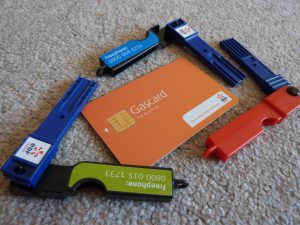The poverty premium: how would you feel?
Posted on 06 Mar 2019 under Lived Experience, Lived Experience, News, Latest News, Poverty Premium
Alicia is a Commissioner of Birmingham Poverty Truth and an Ambassador for Fair by Design. She has also recently become an Ambassador in a unison of Fair by Design and Gingerbread, a charity dedicated to supporting single parent families.
What is the difference between a single parent starving themselves to feed their children, an elderly person unable to get out of bed because they can’t afford to heat their home and a person developing a mental health condition due to debt crisis?
The answer is “absolutely nothing”, if you think about it in financial terms.
I didn’t know until I started campaigning for change that it costs more to be poor! Many services and products that are essential to daily living have extra charges attached, and premiums are paid by people struggling to make ends meet that mean they find it even harder to survive.
The list below is just a few of the ‘poverty premiums’ encountered:
- Energy tariffs
- Prepayment meters
- Paying for insurance in instalments
- Higher insurance policy prices
- Convenience shopping
- High-cost short-term credit (e.g. payday loans)
- Travel costs
- Life emergencies (e.g parking at hospital, prescription charges)
These premiums are something I had been unaware of throughout the eternal money struggles of my daily life.
Prepayment gas and electricity meter top-up cards.
Photo: FlickrThe everyday costs of the poverty premium
It was a foregone conclusion that council housing had prepayment meters for electricity and gas. Of course, I wasn’t allowed an overdraft or credit card – they were for people far better off than me, the “normal” people. Contents insurance was a luxury, but I hadn’t got anything worth stealing anyway! That being said, the policy payments would have been high as we always were always housed in “high-risk” areas. The only way I could afford anything half decent was using doorstep lenders and high cost credit like shopping through rent to own lenders.
The problem? 47% interest.
What could make life easier?
Obviously more money. Despite working at every opportunity I could, and not wanting to rely on handouts, insufficient benefits payments and poverty wages are the reason so many people find themselves living in poverty in the first place. However, an eradication of those poverty premiums would have made my money go further, maybe help to make ends meet. An average amount of £490 per year could be saved for low income households if such premiums didn’t exist.
Payday lenders, rent-to-own retailers and credit repair credit cards could reduce or eradicate high interest charges. Energy companies that rely on loyalty, need and not always best practice, coin in huge profits off standing charges and high-priced tariffs. Reducing their charges in line with direct debit customers and realising that one size does not fit all would go a long way to helping.
Social housing making use of furnishings left by previous tenants could stem the need to use payday loans, rent-to-own and doorstep lenders, leaving more available funds prevent tenants getting into rent arrears. The regulation of high cost lenders by capping interest rates will definitely help the extraordinarily high use by struggling households.
Alicia in her role as an Ambassador for Fair By Design.
Photo: Fair By Design.How would you feel?
Just take a minute to calculate what you class as the necessities and daily spending that cannot be avoided in your life. How would you pay for them if your existing finances were not available? Would you be outraged at the hidden costs you would be forced to pay?
Let’s get the message out there to the people, businesses, housing companies, government, industry and regulators.
Alicia Vernalls
This is a guest blog. The views of the author do not necessarily represent those of the APPG on Poverty.





Comments